Last Quarter: Answering the call of death work
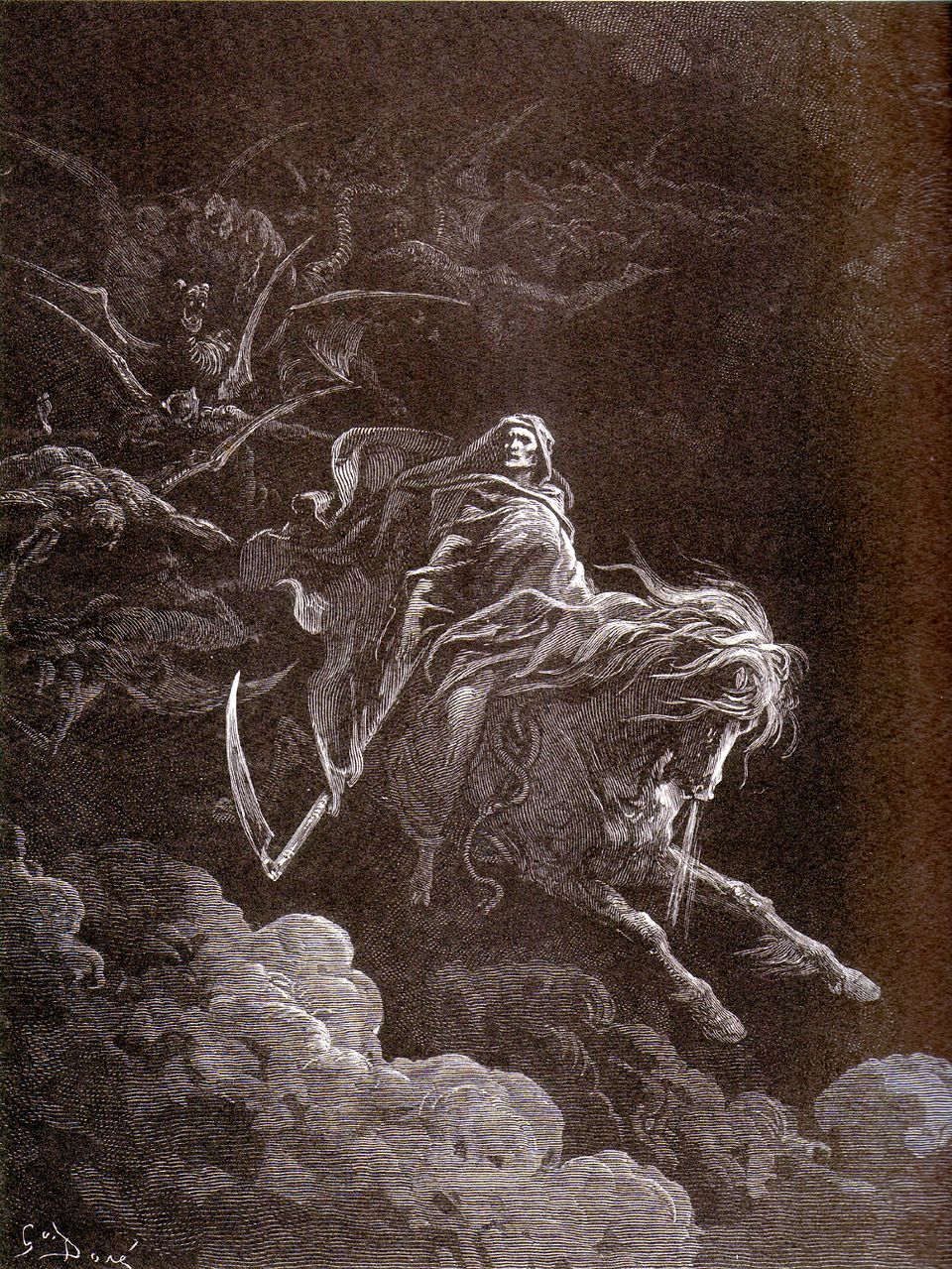
It's Friday. Good afternoon, friends.
We are back to the moon's last quarter, and that means some of the material here may be heavier to process than other posts. Please take care of yourself if you read on. Today I'm writing about death — which, in addition to provoking feelings of existential dread, can draw up old grief and make it feel as fresh as the first long night of loss. Sometimes talk of death is unexpectedly upsetting even when you may think you're prepared for it. I will warn specifically, too, about how this post mentions topics like suicide (including a graphic example), suicidal ideation (although I'm doing okay with that lately), and pet death.
With that warning aside, I'm writing about death this week because I'm more specifically writing about death work, a concept I'll define shortly; but while this is another important principle to establish for future writing, I settled on addressing this particular principle because of converging, synchronous things. As mentioned in my last post, last Friday was my feline familiar's birthday — the first one I observed without him being alive anymore — and now also I'm intending to make him a memorial ornament today, to hang on our Yule tree. That is a kind of death work in and of itself. However, separately from my personal loss, last month I happened to give a small presentation on the topic of death work — to lead a tiny death salon of sorts — for a regional kinky ritualist discussion group I've been gradually getting off the ground since 2020. Although I will always leave the group's membership and specific conversational details opaque in this newsletter, there may be occasions when something I present for them has relevance here, as in this case.
So without further ado, the following is adapted into a non-slideshow format from last month's presentation.
Here are some reflections on death work.
Distinguishing death work from death positivity
Sometimes death work comes up in the same breath as death positivity, but if you've heard both terms, I wouldn't consider them the same.
Helmed on the modern internet by organizations like Caitlin Doughty's Order of the Good Death, and arguably coined by them, death positivity isn't about craving or seeking death, but it refers to advocacy and activism around making people in death-disconnected Western society more prepared to face death, normalizing it again as part of life. I think this is very important, and commend how well death positivity knits together with existing activism like the natural burial movement, hospice advocacy, Death With Dignity, resistance to parasitically profit-driven industries like casket retail, and so on. I can largely thank exposure to death positivity on things like social media for all the ways that I now think about the ethics, metaphysics, science, and art of death.
I agree wholeheartedly with the belief that death shouldn't be something kept behind literal closed doors — that it's not enough to acknowledge death as the gateway to whatever afterlife cosmology you like, when the real problem with death's role in our society is that death on a physical level gets shut away. People in capitalized/industrialized/colonized communities increasingly and overwhelmingly die in alienating institutional settings instead of their own homes, and likewise those of us left behind are often unable to join them in their final moments. Dead bodies are removed from our presence as soon as possible, disposed of without visibility and sometimes even without meaningful ceremony. It's of course fine for someone to request no funeral or even memorial if they don't want "a fuss," but it's not a stretch to reckon that many of the things disquieting people about holding such rituals are related to how those rituals nowadays often prove so sterile, trite, and gratuitously expensive.
But death work is a separate consideration from all these statements. Where death positivity provides a blueprint to embracing death work, it isn't that work itself. Death work may include death positive activism, but it can also be something much more solitary or limited to one's intimate circle. It is any ritual or other activity that deals with death, with implications for broader spiritual alignments, lifestyle choices, career paths, kink risk profiles, and more. It may also include any attitude toward death that someone harbors. In some ways I would find it strange to call myself death positive, even if that's accurate, because at the end of the day, I'm only a little less afraid of death than I became in my late childhood. And at that time, I was very afraid.
Death work calls me
As I've mentioned in weeks past, I have been impacted from a young age by the suicide of a close relative. Besides the basic grief at losing someone I loved and who loved me, his death left many mysteries that consumed me over the subsequent years. It was unexplained; he left no note and nobody knew of anything weighing on him, not even any psychological or neurological issues besides his childhood epilepsy. It was violent; although I wasn't told this at the time, later on I learned his chosen method of death was to eat his own gun, as they say. All of this was made even more unsettling by the fact that the man had performed this act while under the influence of sleeping medication. Would he still have chosen death for himself if he were clear-headed? I don't know. I will never know. And he was even a cop; as I grew up and found plenty of reasons to hate cops, I felt far less sympathy for anything my relative might have been dealing with that related to the professional life he'd chosen, and I could join in unblinkingly with fellow leftists criticizing police and clapping at their deaths, but the fact remains I have a dead cop in my family past and I don't know if I'll ever untangle the right way to feel about the fact he left the world of the living a lot sooner than some people do. At the time of his death, I didn't understand the system of violence he belonged to, and I was instead upset by a positive familial connection being abruptly severed.
But the deepest, most visceral effect of his death came not as any questions about the individual who died or why it happened. Instead, I had my first panic attacks and my first overall feelings of physically paralyzing anxiety, and the trigger was always thinking about the fact that one day I would die. The greatest joke of being conscious has always been and will always be how because dead bodies do not show signs of consciousness, we can only assume that if any consciousness remains, it's not in the same way as when the body is alive; and overwhelming evidence would suggest no consciousness persists whatsoever. Being a completely nonspiritual atheist in my early years, I was afraid of death as an unknown but also felt like I knew what that unknown was, and that this was nothingness, oblivion. Still being skeptical about certain things now, I fear death insofar as I doubt I will ever be tired enough of being a conscious living thing to meet the moment of death with a happy sigh and a "thank goodness all that's over." Whenever I've experienced suicidal ideation due to trauma-induced or -exacerbated depression and anxiety, my brain is always nakedly fantasizing of how to get out of a bad life situation, imagining walking into traffic or stabbing myself or shooting myself or overdosing as a violent metaphor for starting this timeline over — and I always get very upset at what my brain's doing, because then it makes me think about being dead, which I don't want. Despite feeling suicidal several times in my adult life, I've never even made an attempt; and despite my immediate family's pattern of mental illness on the same side as the relative who killed himself, I'm increasingly confident that I'm never going to add to inheritable suicidality statistics. As long as I'm not on drugs when that feeling comes along.
Lately through therapy I've come to believe my fear of death is linked with this relative's death and has been reinforced by subsequent ones. When I was an even younger child, a much more elderly family member died, and this was just treated as the natural way of things, and there was an open casket viewing of her body followed by an extensive funeral service; in retrospect, I really appreciate all of that. In the suicide's case, however, I had death reconfigured for me as a tragedy. I also never saw the body. There was a funeral, but the body was cremated[1] beforehand, out of sight. Since then, aside from cats in my home I've heard of all deaths after they've happened, rarely had recent interactions with the deceased, sometimes been unable to attend their funerals or memorials (sometimes there haven't been any), and in the cases where I have attended, the body hasn't been there or has remained hidden from view.
I've started to feel as if — like many other people in my cultural context, but in a pronounced way on my end — my relationship with death is wounded, and to heal it, I need and want to actively encounter death and dead things. The more I encounter death as it is, the less it can frighten me, and when my time finally comes, maybe death really will feel like a kind of strange friend. As painful and miserable as it was to go through my familiar's death and the death of another cat two years earlier, I'm immeasurably grateful that my owner and I were able to bring a euthanasia provider to our home in each instance, and not only to help these lethally sick cats pass without agony, but also to witness the moment of death occur. With the first cat who died, I watched his breathing stop and his pupils dilate so wide that they seemed to consume the whole of his eyes until they grew cloudy. With the second cat, my familiar, after I read him a long farewell message, he passed with his eyes closed but I was able to feel his last heartbeat, to feel him turning cold and still. I wish that with the next human in my life who dies, perhaps I could witness that as well, and help to handle the body afterwards in preparation for its commitment.
I don't wish to romanticize death in ways that tempt suicide for others, or that lend the notes of eroticism leading to serial murder or necrophilia. But as I've finally encountered death as a dynamic process, I've realized I can find it as beautiful as life. That matters to me.
And so I feel called to death work. Not to the exclusion of other callings, but as an addition. These next sections cover the kinds of death work I've thought about pursuing or at least find very interesting.
Death work for my immediate life
Grief rituals, honoring the dead: As a ritualist, I find one of the most instinctive places to turn for death work may be literally designing personal rites to perform in memory of dead loved ones, ancestors, or other people. That's my intention with the tree ornament I'm making later today. I also am continuously searching for the right ritualized actions to take around the absence of former presences. I feel a lack of closure with several grandparents' lives and deaths; I want to spend more time meditating on what would give me that closure, what would help me feel like the good aspects of their ancestral memory can stay with me. I likewise mourn my familiar's absence on a semi-daily basis, and I'm questing for what's an authentically grounding ritual I can perform for him as needed or on a schedule, without being performative.
Rituals to face one's own mortality: I might like to perform a ritual sometime that helps me symbolically or literally confront death, not with the intention to conquer my fear but to at least breathe through the fear. I'm fascinated this prospect especially as a kinkster, and in a way might recommend that other kinksters consider the prospect closely. Much of What It Is We Do carries a risk of fatality. How can we perform those violent and daring acts with better respect for that risk? How might feeling prepared for death alter our risk profiles?
Creating a personal death plan: One way that someone may feel more prepared for death is to go beyond writing a last will and testament — to create a written plan to share with their loved ones and anyone whose help would be needed to make sure that this person was able to die on their own terms (or as close as possible), that their remains would be handled as they wished, and so forth. This can include writing a final directive for healthcare purposes, a ritual for you or others to perform for/with you when you’re near death, instructions for any funeral and how to commit your remains, a list of things you specifically don’t want to happen, and a list of contacts for the mortuary services you’d like to use. While I'm only 35, I have made such a plan in fairly exhaustive detail, and although it's due for some updates and makes for very rough writing (and reading), I keep the current form with my household's other important paperwork. This has definitely given me a certain peace of mind already.
Death work for the community
Funerary practices, old and new: Some ritualists find it’s our calling to officiate funerals, or we at least lament a lack of modern funeral practices that accommodate animist, pagan, occult, or similar traditions (or, for that matter, kinky lifestyles). I've never designed a funeral for someone else, but having made my own death plan I can say that if you're a friend and you've been trying to no avail to figure out an ideal funeral, I'm open to talking. Furthermore, I wouldn't say I have the time or intereset in officiating funerals for strangers or mere acquaintances, but for close friends let me put on the record that I would officiate your own funeral if you liked. (This is not the same thing as offering to execute your estate. Please do not ask me to do that at any stage of our lives together unless we are utter bosom companions.)
Death doulas: In most parts of the United States, voluntary euthanasia is not legal, but we still have a growing number of death doulas, analogous to birth doulas, although licensing is a complex issue. A death doula’s role may resemble hospice care but often focuses most on providing psychological and logistical support for people who are actively dying or expecting to die soon, and for their families — though they may be most needed when someone has no family to help them. Some ritualists may find it’s our calling to become death doulas, or we may at least hope to contract their services. Even more than funeral officiation, in light of my experiences with pet death I've been more than idly debating whether becoming a death doula on a limited but long term basis would be a good use of my time. I might prefer to do it when I'm later along in life as well, but I may have a lot of time ahead of me.
Mortuary arts and death science: Leaving all direct ritual aside, I've found like some other people that it becomes easier and easier to prepare for eventual death if we can learn as much as possible about how death actually works. Fueled both by demand and by the death positivity movement, there’s a boom nowadays in younger people becoming morticians, taking other jobs in the funeral industry, or pursuing research about death and decomposition. I don't think I ever want to be a mortician, run a funeral home in general, or anything else centering corpses in my life on a daily kind of basis; nevertheless, as mentioned earlier, I would at least like to learn enough about mortuary arts and death science to be able to help prepare a body for viewing, burial, cremation, or what have you.
Death work for extinction: apocalyptic witchcraft
The last two sections address death work on levels of changing individual and communal relationships with death. Scaling up to the topic of extinction, I find this to encompass the most difficult notions of all — the prospect of mass deaths that lead to irrevocable extermination of a given life form, or the prospect of personally dying under circumstances where it's unclear your own species will survive much longer than you.
Nonetheless, I'm called to death work where extinction is concerned, via the dimension of apocalyptic witchcraft. This term may have been coined by Peter Grey, a British writer and magical practitioner, as the title of one of his books. He also discusses the need to approach witchcraft apocalyptically in his shorter 2013 lecture/essay “Rewilding Witchcraft,” examining the severe risk of Earth becoming uninhabitable for humans and maybe other species in less than a century. The sentiment I understand behind “apocalyptic” witchcraft is the need to develop ritual practices that engage with potential extinction(s) and/or permanent imbalance of the Wheel of the Year and communities who live with the land.
I haven’t read enough of Grey’s other work to endorse him on the whole, but reading the essay several years before the 2018 UN Climate Report changed my life and drove me to practice what I practice today. Here is the complete essay, which I encourage everyone to read, but only if they feel extremely emotionally sturdy at the time. Right here I'll just quote two excerpts from near the end.
American environmentalists now talk about us being in hospice, that is, transitioning to death in a calm supportive place. Witchcraft is more active than that; we are performing rites for those who society despises. If you are engaged in witchcraft I suggest that you work on the lament, on your death rites and your eschatology, and on your spirit body. There are the examples to emulate of those sensitively lifting roadkill from the asphalt for burial or reanimation, tending the graves of their neglected local cemetery, lighting candles for their ancestors. We should also be able to offer ministry to those who are being broken on the wheel of modern life, and for whom the self-harm and SSRIs cannot numb the pain. Our relationship to the living world of spirit means that we should also offer our support to those who are actively seeking to destroy industrial civilisation by direct action against its infrastructure. These people are not terrorists, they are the conscience of the body of the world. We must defend what is left. As practitioners we must also begin to transfer our allegiance to the other world, for, if there is to be any survival, that is where it will be found. This does not mean that we abscond from our responsibilities in the world as it is. [...]
Our elders have failed us, they have not provided leadership, they have not provided counsel, they have been silent and compliant in the face of power. They have said nothing on fracking, climate collapse, the extinction crisis and done even less. The old have, for the most part, betrayed the youth. This is as true of witchcraft as it is of our wider culture. It is therefore down to us, as individuals, to take our lead from the only source of initiation, living spirit, and through it embody the new witchcraft. We must become a witchcraft with a renewed sense of meaning and purpose, of responsibility to the land which is in crisis, or we are simply consumers of the earth which will all too soon eat of us.
I will come back to that essay in full, eventually, to delve into what I got out of it and what I would caution against interpreting in the writing. But for the moment, let me simply offer apocalyptic witchcraft as the keystone of all ritual death work. Just as death positivity does not mean seeking death but does mean confronting and proactively engaging with the fact that death exists as an inevitability, so too do I see apocalyptic witchcraft as a paradigm for not simply lying down and accepting the eco crisis as an ultimate doom, but rather for making preparations that account for future ritual work to be perhaps forever altered by the vanishing of other species, of our own, or of the planet's life-sustaining architecture. This should include acts of resistance against the people causing extinction(s) but also a cultivated realism around surviving various scenarios and eulogizing those beings which do not survive.
I do not want my death work to be cuddly, fluffy, or commercial. Good death should work harmoniously with ecological rhythms. If I am to call myself a death worker, I can't help but consider that in the times to come, death workers may well be needed in exponentially increasing numbers.
Final thoughts on finality, for now
This post isn't a death salon the way that my original presentation was, but I offer it in that same vein. Some death salons feature talks by experts in relevant fields, while others are more social skillshares. Salt for the Eclipse will always be tapped somewhat into that realm. I expect to write not constantly but still periodically and frequently on matters of death, whether regarding how death has affected me or regarding philosophies and sociologies of death. Whatever other sort of death work I continue adding to my practices, this kind of writing will form a part.
[1] Aside from ecological concerns about cremation, I completely endorse people choosing cremation (and for that matter aquamation), whether because of their religion/culture's traditions or because it really feels right for them. But I do think that when cremation, aquamation, or similar take place without witnesses, it can be hard to translate those events into closure regarding the transformation of the formerly living body into its new state. I would love to watch a body burn on a funeral pyre, but that's very different from having the body disappear and then a few days later having someone tell me, like some sort of stage magician, that the body is this pile of ash in a container now.
Thanks for reading another missive. As remains my usual entreaty until breaking even or earning more of a living from this, please consider paying at least $1/month to account for the time I spent writing this out — but if even that is too much or you're not quite invested on that level, I would again deeply appreciate readers sharing or breadcrumbing links to this post or others I've written. I'm abjectly disinterested in finding readers just to have them, likewise in asking for money, so the sooner that I get over the necessary threshold, the sooner I can stop asking and ending my posts like this.
Next week will be my first post that engages directly with a nearby holiday on the Wheel of the Year, in addition to handling a topic related to the latest moon phase. I can also promise that in this case I'll be focusing on something diabolically delightful. Thank you again.
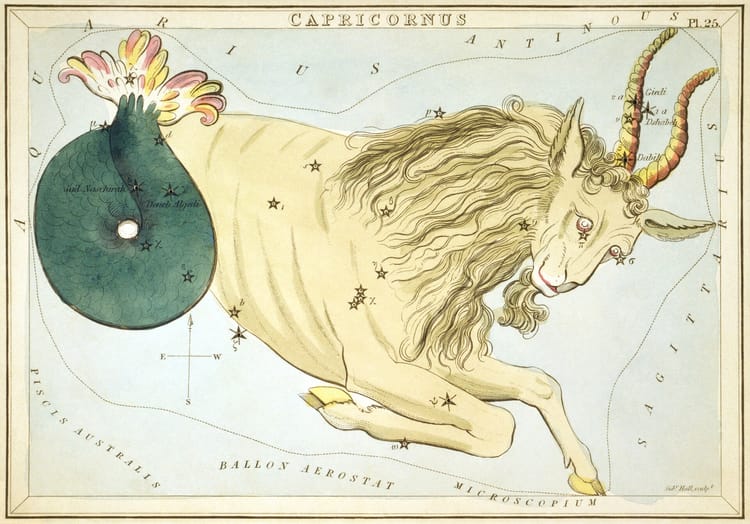
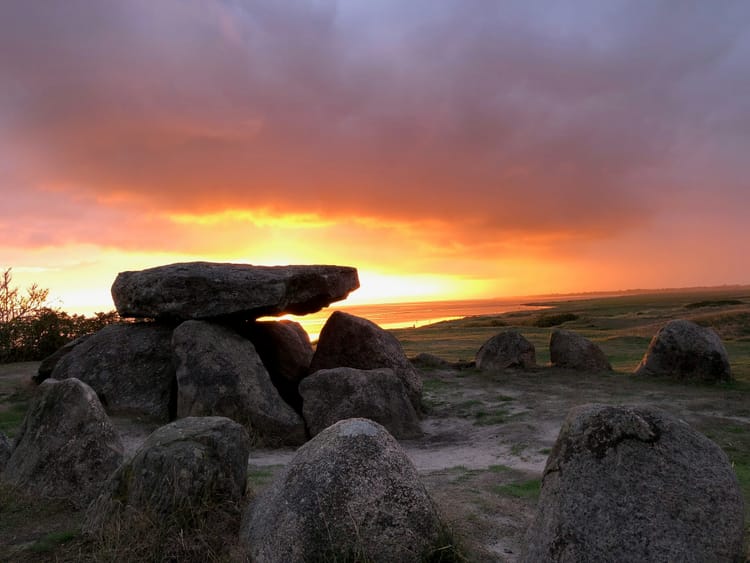
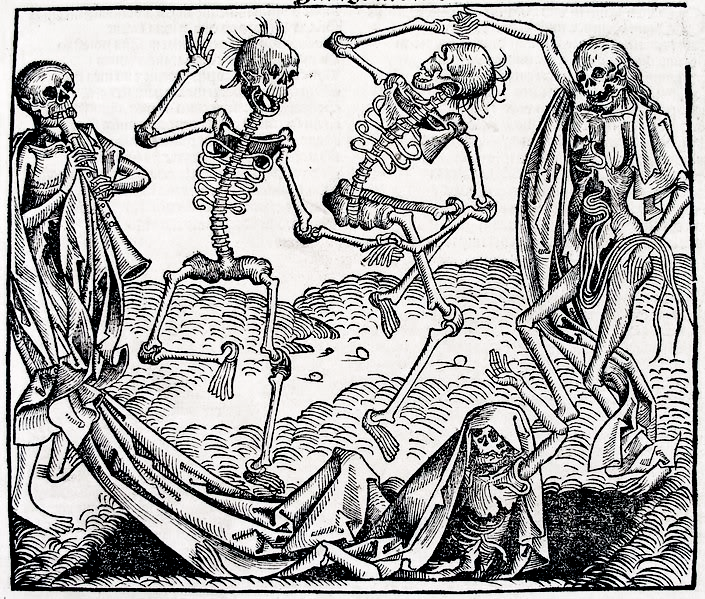
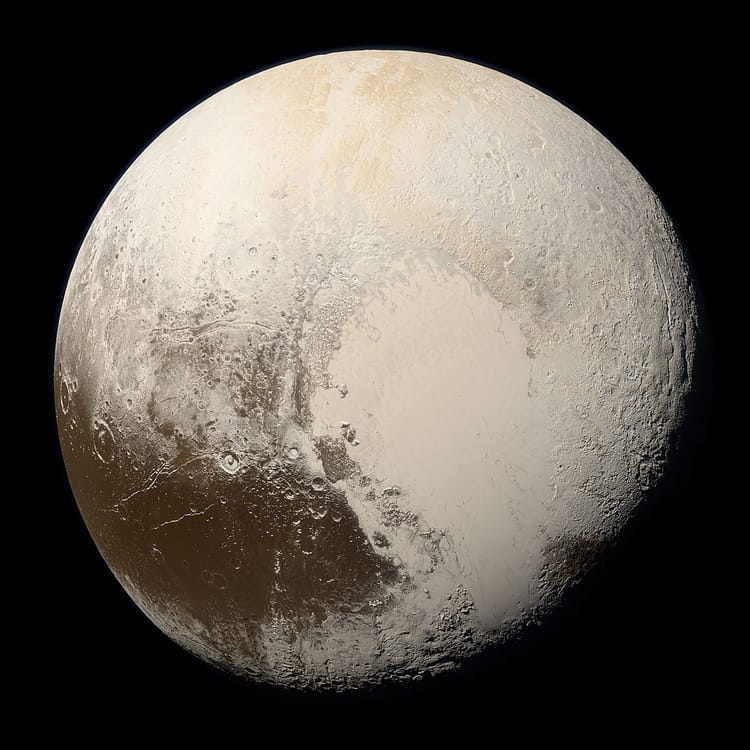
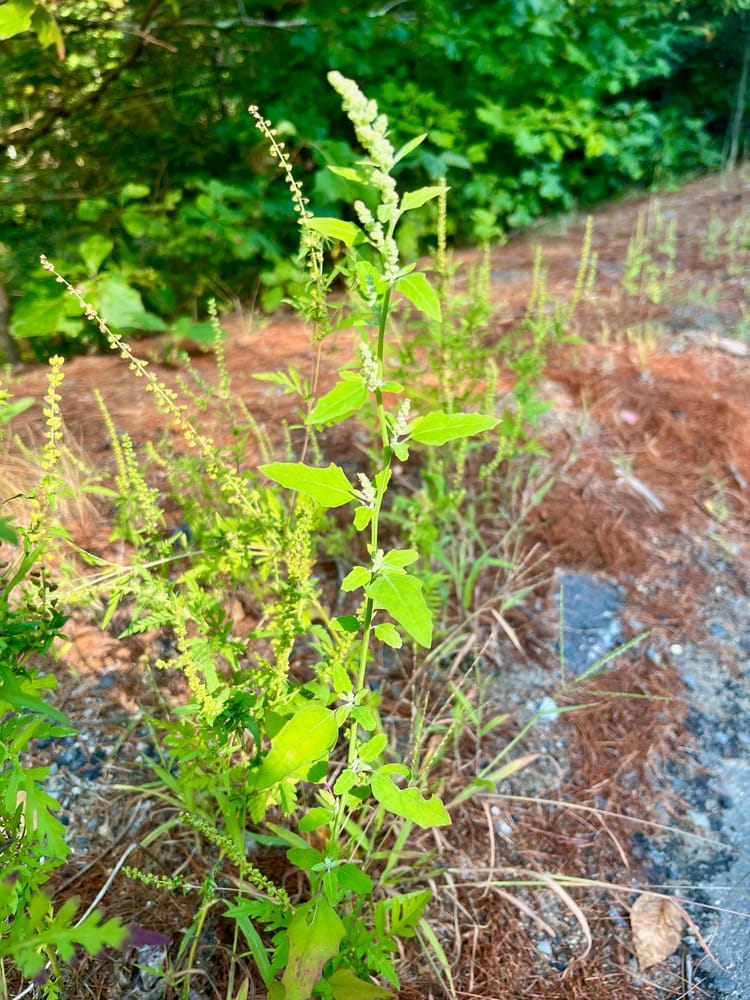
Member discussion